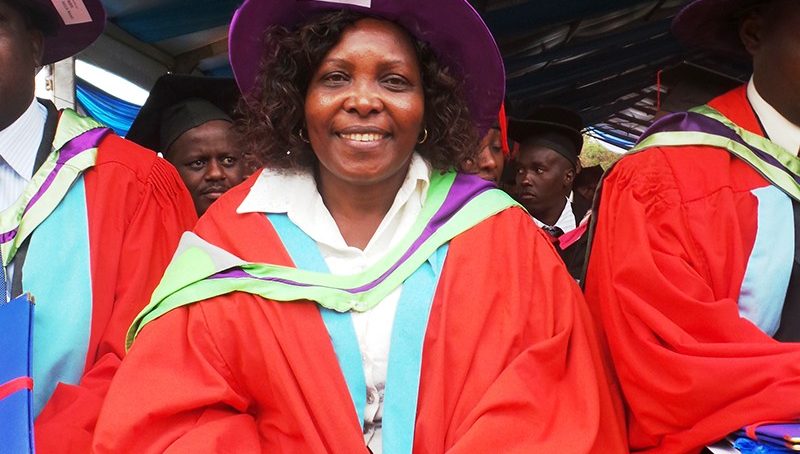
Rose Okoyo Opiyo is a Kenyan nutritionist at the University of Nairobi and was a panellist at a webinar held last month titled Pursuing a PhD in Africa: Bridging the gender gap.
The webinar was organised by the Consortium for Advanced Research Training in Africa (CARTA), a group of research universities and institutes that aims to strengthen research at African universities by sponsoring PhD candidates, postdoctoral fellows and faculty development across seven African nations.
More than half of the 228 PhD candidates that CARTA is currently sponsoring are women. Opiyo was part of the first cohort, from 2011 to 2015.
How did CARTA’s sponsorship of your doctoral studies help your career?
I had tried several other scholarships before I succeeded at CARTA. I think my advanced age of 47 years when I applied in 2011 was a red flag to many organisations. The CARTA initiative has a higher age limit than many other schemes. When I applied, the age limit was 50 for women and 45 for men, although the policy has now changed to 45 for women and 40 for men. This opportunity means that women can return to further studies after raising their children.
What other initiatives help to boost the number of women pursuing PhDs?
I like that CARTA has a childcare support system. It pays for a carer to accompany the researcher and their children when taking part in training and programming. Carers can be researchers’ spouses or mothers. This is a game-changer we need in Africa if we are to have more female researchers advance.
I did not personally use the childcare opportunity because my children were already adolescents. However, CARTA sponsored me at my local university, where I was able to keep a close watch on my children. I did not want to leave to study abroad and then return to find them completely different children.
What challenges do female researchers face in Africa?
Pursuing my PhD as a mother, wife and woman was challenging. I had to work harder than my male colleagues. While my focus should have been working on my PhD, I would find that home responsibilities, as well as my husband and children, competed for my attention. My husband, for example, did not understand why I had to spend so much time working on my PhD.
Luckily, I had learnt to juggle these responsibilities earlier in my career, when I got pregnant while doing my undergraduate studies at Kenyatta University in Kenya. You need to divide your time well to cater to different activities. For example, I used mornings and evenings to study and read, and did my laboratory research between 8 am and 5 pm. My car was usually the last in the car park.
What advice do you give young women who are interested in research?
Focus, focus, focus. It does not matter at what stage in life you are — whether you are young, old or with children. If you lack focus, you will not be able to complete your course, be it a doctorate or a master’s degree. Also, don’t work in isolation. Many female students withdraw when faced with challenges. But they need to talk to their colleagues. Luckily for me, CARTA has a habit of checking on its fellows and lends a listening ear.
How can senior researchers motivate young women to pursue PhDs?
We need to show that our research helps people and gives solutions to the community. Take, for instance, the work that I am doing educating the community on the right foods to eat to minimise the emergence of diseases.
Unlike in the 1990s, when many people were undernourished, many Kenyans today are eating too much and having to cope with the after-effects. Can we find a solution by encouraging people to eat more of the available local food so that they can live healthier lives?
Eating local, healthy foods, such as thorn melons (Cucumis metuliferus), mangoes and lemons, will ultimately cut down on the prevalence of chronic diseases such as diabetes and hypertension and on health-care costs. That is where I am investing my energy.
Are there cultural attitudes you would like to see changed?
Yes, the societal belief that the woman’s office is the kitchen has to change. Home chores such as cooking should be a shared responsibility. Women should be supported to achieve their dreams.
- A Nature report











